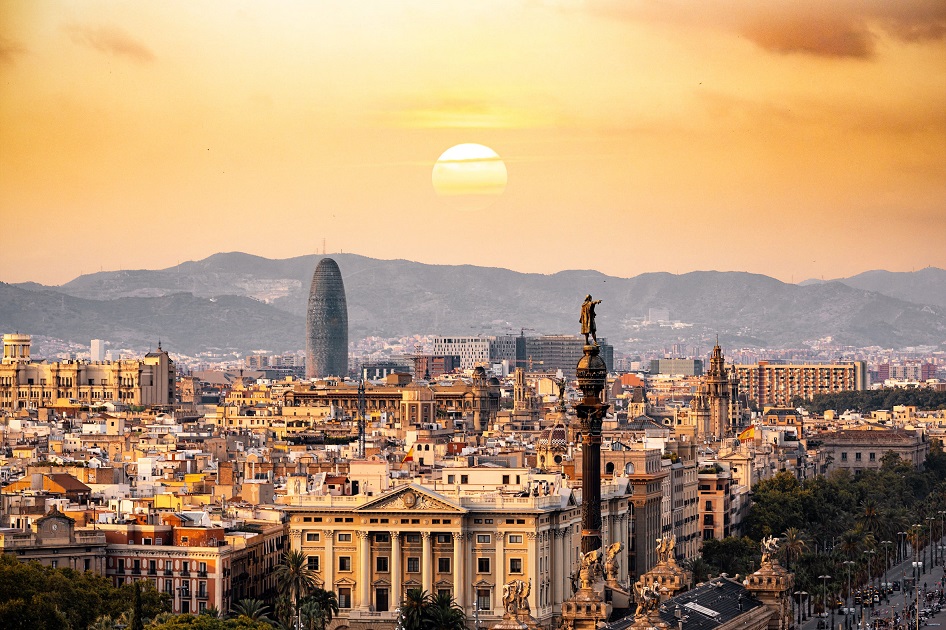Fancy a stroll through Barcelona’s history? The streets and neighbourhoods of the Catalan capital have paid witness to thousands upon thousands of years of memories and events since the city was originally founded. Over time, the place has evolved into the cosmopolitan city that stands before you today.
However, if you want to really get to know the origins as well as the historical heritage of the region, there’s nothing quite like visiting the Barcelona History Museum, which first opened way back in 1943. The main site is located at Casa Padellàs in Plaza del Rei in the heart of the Gothic Quarter. If you want to explore some of the highlights of Barcelona throughout the ages, we’ll tell you all you need to know below.
The Romans: the start of Barcelona’s history
Back in the 4th century BC, there were just two Iberian villages. The first, in Taber, could have been the origins of what we know today as Barcelona, since various historical sources have referred to it as Barcinom or Barcilo over time. The second, called Laye, was located on Mount Monjüic. The first arrival of the Romans into the Barcelona history books dates from 218 BC, when they settled in Monjüic itself, and where they went on to build the fortress that can still be seen to this day. Later, they would leave this part of the city to shore up their position around Plaza Sant Jaume, so we can safely say this is the historical origin of the Catalan capital.
In 415 AD, the Visigoths arrived in Barcelona and established the first capital of the Spanish Visigoth kingdoms. However, in the 8th century, it was invaded by the Muslims and, later on, in the year 801, by the Carolingians, who turned the city into the county of Barcelona. It’s worth remembering that this period of Barcelona’s history is very marked by the coming and going of various alliances and family successions, unions and separations among the counts and nobility of the area.
Annexation to Castilla: the history of Barcelona
Nevertheless, in 1137, Cataluña was annexed to Castilla as a result of the union between Fernando de Aragón and Isabel de Castilla. Barcelona was fast becoming the economic and political powerhouse of the Corona de Aragón kingdom, as well as one of the most important cities on the Mediterranean. However, this union caused Cataluña to lose its own institutions.
During the 13th, 14th and 15th centuries, slap bang in the middle of the medieval era, some major constructions took place that would leave their mark on Barcelona forever. Some examples are the Cathedral of Barcelona and the Church of Santa María del Mar, among others.
Between the 16th and 17th centuries, and in the wake of the Wars of Succession, Barcelona went bankrupt and was plunged into a major crisis. But thanks to trade with America and the rest of the peninsula, the city slowly began to come back to life. Specifically, it was the arrival of industrialisation at the end of the 18th century and the beginning of the 19th century that led to a big turnaround in the history of Barcelona, including the growth of the textile industry and urban development – the arrival of the railway and the tram, the construction of large avenues and streets in Barcelona –, which completely changed the city.
20th century: light and shade in the history of Barcelona
The modernist movement represents a stark turning point in Barcelona’s history, which was an unstoppable force between the end of the 19th and the beginning of the 20th century. Architects, painters, sculptors… they collectively turned the Catalan capital into the centre of modernism. During this period, many buildings with modernist features and details were built, making Barcelona a city that was truly at the cutting-edge of style. Without doubt, the most famous is the Sagrada Familia in Barcelona, designed by Gaudí himself, the construction of which began on 19 March 1882.
However, the beginning of the 20th century was also marked by a series of events that tainted the city’s history, such as the Tragic Week of 1909, as well as the serious confrontations between employers and the anarchist movement brought on by the crisis following the First World War. But in the midst of all this chaos, there were also a few rays of light, such as the Barcelona International Exhibition in 1929, as well as the proclamation of the Second Republic in 1931, thanks to which Cataluña regained its autonomy.
The Civil War was another stand out period of the 20th century. Barcelona was on the Republican side and, as a result, had to endure relentless bombing from national troops. On the other hand, the city was one of the lucky ones after the end of the war, since it was able to benefit, in a spectacular way, from economic development between the sixties and seventies.
The 1992 Olympic Games also represented a key milestone in Barcelona’s rich history, giving it international prominence and making it the second most-visited city in all of Spain.
Today, the Catalan capital is known for its modernity, culture and light, where there are thousands of things to see and do on your visit. All of this added to a Mediterranean climate with the most beautiful temperatures all year round… What are you waiting for? Come and see for yourself!














